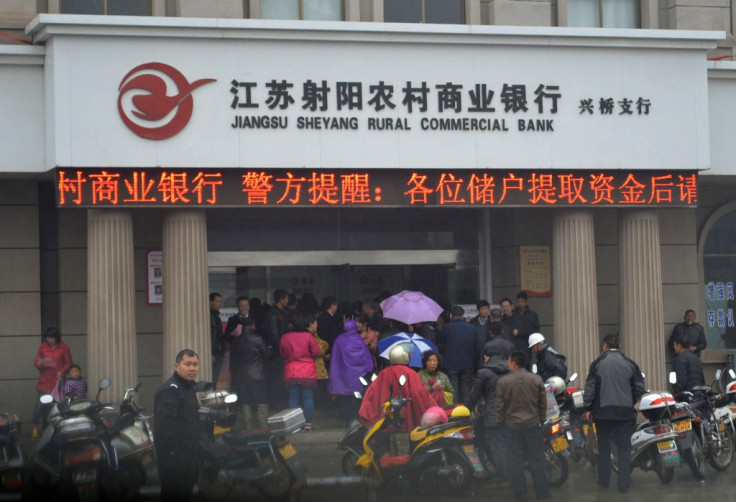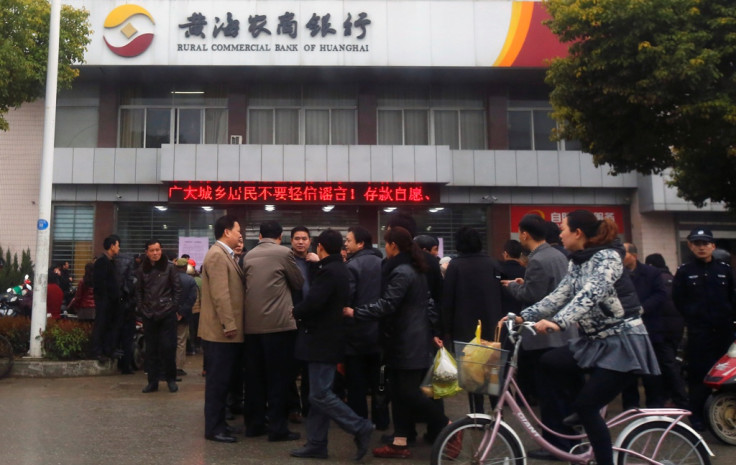China Rural Bank Run Highlights Public Anxiety Over Nation's Financial System

Two small rural lenders in China suffered bank-runs earlier in the week following speculation that one of them was going bankrupt. The panic was sparked by alleged failures to allow customer withdrawals.
The incidents, though isolated, won national airplay. China's financial system saw its first onshore default this month, despite assumptions that Beijing would always intervene to prevent institutions from collapsing.
Pursued by Reuters, Jiangsu Sheyang Rural Commercial Bank and the Rural Commercial Bank of Huanghai refused to comment on the run on their branches.
Yancheng police said on the force's official microblog that they had detained a person suspected of spreading rumours.
China's banks are tightly controlled by the state and bankruptcies are virtually unheard of.

However, parts of the coastal Jiangsu province, where the two rural lenders operate, have witnessed a surge in the number of loan guarantee, or "danbao" companies and rural credit co-operatives.
These often shadowy private financial institutions promised higher returns on deposits than banks, but many have since collapsed, probably explaining why customers queued outside the two banks this week.
Banks, unlike credit co-operatives, provide regulation-ordained guarantees by virtue of stringent capital requirements.
Systemic Risks
Any default of loans in China does not indicate systemic risks in the world's second-largest economy, Premier Li Keqiang has unequivocally stated.
Li, speaking at a press conference on 13 March, after the closing ceremony of the Chinese National People's Congress (NPC) in Beijing, said that debt risks in China were under control.
Chaori Solar
Earlier in the month, Chinese solar equipment maker Shanghai Chaori Solar Energy Science & Technology missed a deadline to make interest payments on its corporate bonds, resulting in the country's first domestic default.
Analysts described the Shanghai Chaori default as China's "Bear Stearns moment" - possibly a slight exaggeration.
The loss-making firm had warned earlier it could repay less than 5% of the 89m yuan ($14.3m, £8.6m, €10.4m) in interest due on 1bn yuan worth of bonds issued in 2012.
Shadow Banking
While Beijing has praised its much-debated shadow banking system, saying it played a positive role in boosting its economy, critics argue that it fuelled the country's debt levels.
Analysts warn that default risk is very high in shadow banking products, and they expect more bad news from the sector.
Shadow banking has experienced rapid growth in China in recent years, with trust assets surging 46% in 2013 to a record 10.9tn yuan.
Lending by institutions outside China's formal banking system now account for 84% of gross domestic product, according to JPMorgan.
© Copyright IBTimes 2025. All rights reserved.






















